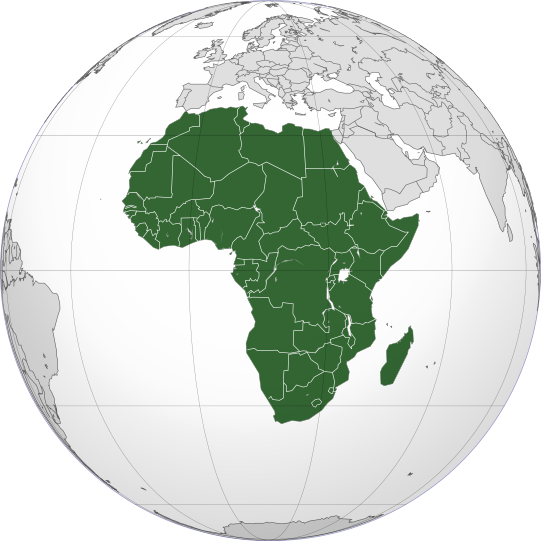Africa is Heading for an Ecological Disaster
http://www.capetimes.co.za/index.php?fArticleId=5177780
September 25, 2009 Edition 1
Mariam Mayet
First introduced commercially in South Africa in 1998, genetically modified (GM) seeds are used extensively in our agriculture. In just over 10 years, 56 percent of South Africa's white maize and 72 percent of its yellow maize have been converted to genetic modification.
A staggering 96 percent of the area planted to cotton is comprised of GM varieties and 88 percent of soyabeans are GM. Genetic modification is an imported technology, and licensed for use in South Africa. A small handful of multinational agro-chemical/seed corporations - Monsanto, Syngenta and Pioneer Hi-Bred - control the GM seed market. Monsanto has bagged the lion's share of the patents on GM traits and secured access to the South African market through an extensive and well-oiled agribusiness dealer network.
Profits are secured through the extraction of exorbitant technology fees from farmers. Farmers using Monsanto's GM seed sign away the right to save or exchange seed. They also absolve Monsanto from liability for contamination. Monsanto has ruthlessly taken legal action against farmers for patent infringement.
Last year alone, the South African government acting through the Department of Agriculture granted 425 permits for imports of GM seed into South Africa, field trials and commercial releases. It is unashamed in its support of GM technology and sees it as a key growth area for the economy.
It is thus not concerned that farmers who use GM seed are locked into an industrial agricultural system dependent on ready-made packages of industrial inputs - a process that de-skills farmers. It also cannot see that these corporations are now moving away from the single trait GM technology on the market since 1998, to the production of seeds with "stacked" traits.
A single GM maize variety can contain up to eight transgenes - genes expressing for herbicide tolerance and insect resistance. Farmers are having to continuously upgrade and adapt to an externally driven agenda over which the government has no control.
Drought tolerance in GM maize is also being touted in The Time of Global Warming. Monsanto is feverishly conducting field trials in South Africa of four varieties of abiotic stress maize and is set to provide patented germ-plasm and transgenes to the highest bidder. At the same time, millions of dollars from the Bill and Melinda Gates and Howard G Buffet foundations are pouring into Africa for GM drought-tolerance research and development. GM drought tolerance is being offered to African countries as a panacea in the alleviation of poverty and hunger, and in combating climate change. This will usher in massive field trials across Africa, finally pushing open hitherto closed doors to GM-based agriculture.
The Bill and Melinda Gates Foundation through the Warren Buffet Foundation, the Yara Foundation and the Soros Foundation has committed over $300 million (R2.2 billion) to the New Green Revolution push in Africa. This is an agriculture system underpinned by the single-minded objective of increasing crop yields.
The term was coined by the US Agency for International Development (Usaid) in 1968, to describe breakthroughs in the development of seeds responding well to inorganic fertilisers and agro-chemicals.
The model was introduced in South-East Asia and India, heralding a historic shift in global farming away from local production for local consumption to large-scale production of mono-crops for the global market.
Cut from a similar cloth, the African Green Revolution discourse defines rural poverty in terms of insufficient productivity, which a technological "fix" comprised of high-yielding varieties, GM seeds and agro-chemicals will resuscitate.
A tendency of the Green Revolution is to myopically view food shortages as a shortcoming of food supply rather than a more complex phenomenon requiring a holistic understanding of why people go hungry. Nevertheless, this ideology has received the endorsement of the African Union, and is propagated through the New Partnership for Africa's Development. Heads of state in Africa have also thrown their weight firmly behind it.
The philanthropic money pouring into Africa is used to lay the groundwork for the industrialisation of African agriculture and creation of markets for agribusiness. In turn, this is paving the way for the emergence of a new rural private sector, agro-processors and exporters who contract small farmers to produce crops for them.
Added to the mix are the ongoing attempts by USAID to undermine the sovereignty of African governments by unduly influencing biosafety laws. It is only a matter of time before national biosafety spaces will acquiesce to the expanding needs of Monsanto, Syngenta and their ilk.
http://www.oaklandinstitute.org/voicesfromafrica/node/46
Etiquetas: Africa, Oakland Institute


0 Comentarios:
Publicar un comentario
Suscribirse a Comentarios de la entrada [Atom]
<< Página Principal